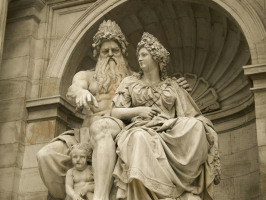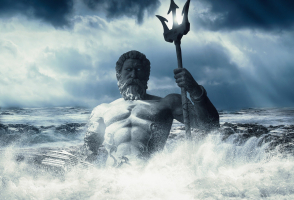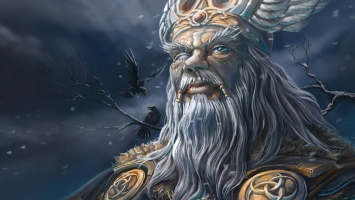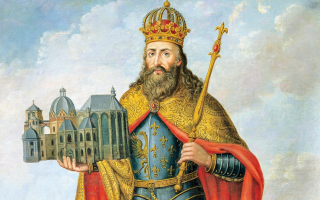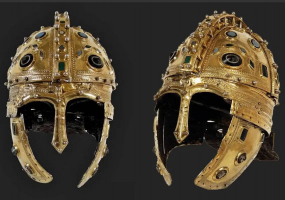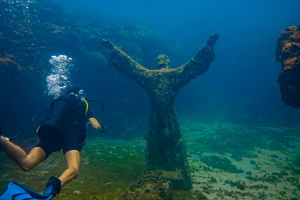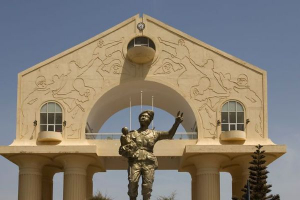Top 10 Most Famous Myths Featuring Hercules
Hercules is the most well-known figure in Greco-Roman mythology. As a divine hero who endured sufferings like humans while carrying out incredible acts, ... read more...there are a lot of famous myths featuring Hercules.
-
Hercules is one of the children of the God Zeus. His mother, Alcmene, was a mortal queen who was the wife of Amphitryon - a mythological Greek hero and also the son of Perseus. Zeus was infamous for his sexual adventures and was always following one woman or another. As a result, he was drawn to Alcmene because of her remarkable beauty. Alcmene refused Zeus, but he fooled her by pretending to be her husband Amphitryon, and impregnated her with Hercules. Zeus informed the Gods that Alcmene was about to give birth to a Perseus descendant who would one day rule as the High King.
Hera, the queen of the gods, became enraged and envious when she knew the honors her husband gave to his illegitimate son. She made the decision to stop Alcmene's son from achieving his predetermined fate. Thus, Hercules had already acquired a formidable foe and would continue to incur Hera's wrath throughout his life. Demi-god Hercules had superhuman strength and stamina from birth. In fact, he was given the name Alcaeus at birth and later changed it to Herakles, which means "Glory of Hera," informing that he would gain victory as a result of his conflicts with the goddess.
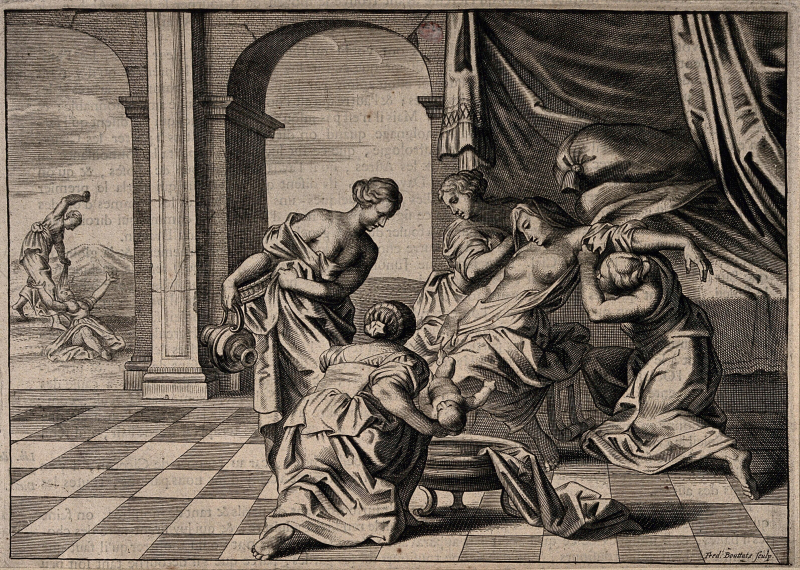
Photo: Wellcome Collection Source: See U in History -
Zeus and Amphitryon's children were carried in the same womb by Alceme. However, nobody was sure which of the twins, Alcides and Iphicles, belonged to whom when she gave birth. The larger of the two, Alcides (Hercules), was indeed Zeus's son, as Alceme correctly assumed. She chose to abandon the child, leaving Alcides to perish from exposure in a Theban field, out of fear that Hera would get revenge on her. However, his half-sister and protector, the goddess Minerva (Athena in Greek myth), rescued the abandoned Hercules. Knowing exactly who she had saved, Athena played tricks on Hera and gave the child to her.
Ironically, Hera started bringing up the kid she had prevented from being born because she had failed to recognize Hercules. By consuming the milk of Goddess Hera, Hercules was revived and strengthened even more. One day he once sucked too hard on Hera's nipple. Painfully, Hera pulled the child from her breast. As a result, Hera created the milky way by spraying her motherly milk into the sky. The formation of the milky way is one of the most famous myths featuring Hercules. After Athena sent Hercules back to Alcmene and Amphitryon, his parents then realized it was the god's intention that he grew up with them.
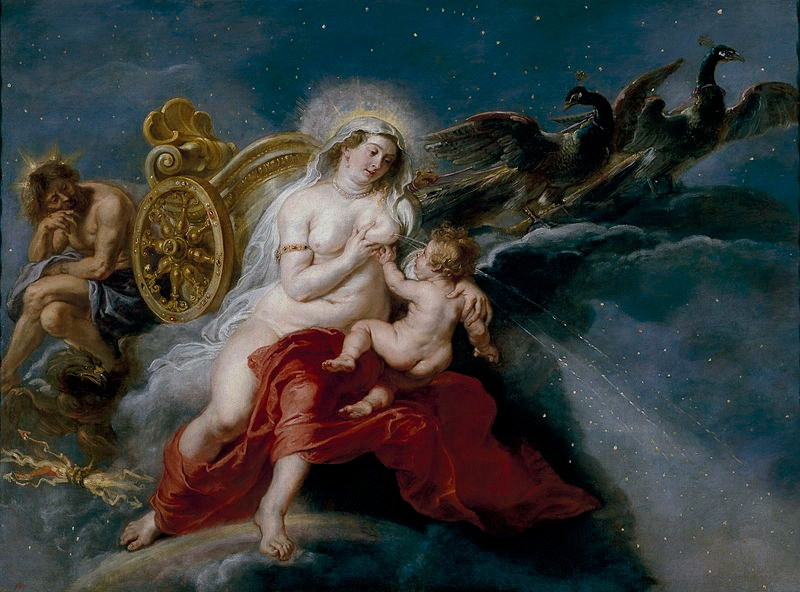
Photo: Greek legends and myths Photo: Ancient Greece -
Hera first utilized her magical abilities to stop the young Hercules from ascending to the throne of Mycenae. Despite Zeus's declaration that his son would rule the Mycenaean realm, Hera's interference led to the weak Eurystheus, a different infant boy, to become a leader instead.
After the baby Alcides (Hercules) was eventually returned by the goddess Athena to his mortal mother Alcmene and his stepfather Amphitryon, the couple accepted their fate after recognizing that raising the child was the Gods' will. However, Hera hadn't forgotten about Alcmene's son from her husband Zeus, so Alcides' problems persisted. Hera dispatched two serpents to kill the 8-month-old twins because she was unsure whether of Alcmene's boys was the demigod. Iphicles started to sob frightenedly as the snakes climbed the crib the brothers shared.
On the other hand, Alcides grabbed both snakes and killed them. Amphitryon, in deep concern, sought advice from the learned Theban prophet Tiresias, who reassured him that Alcides would only be the first of many monsters he would defeat in his lifetime. out of concern for their son's safety and in an effort to mollify Hera, Alcides' parents gave him the new name Heracles, which is Greek for "glory of Hera". A subsequent Romanization of the name is Hercules.
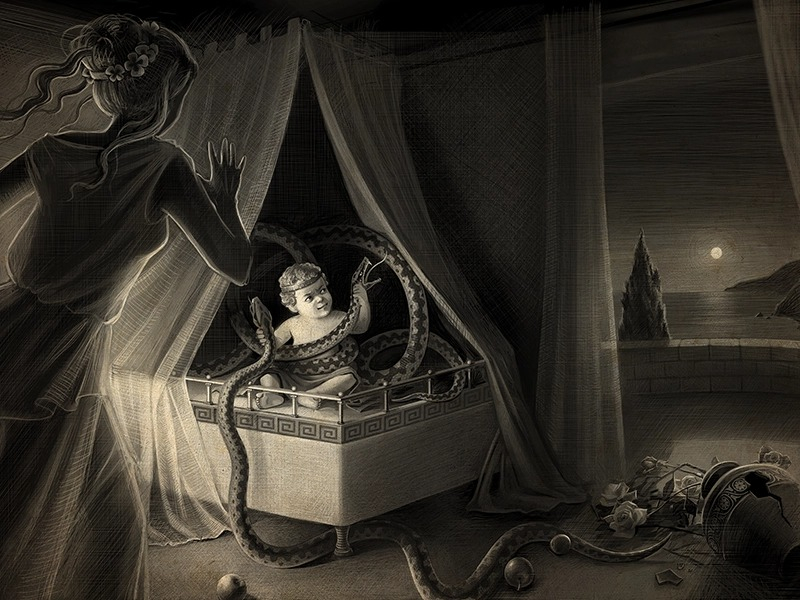
Photo: Dribbble 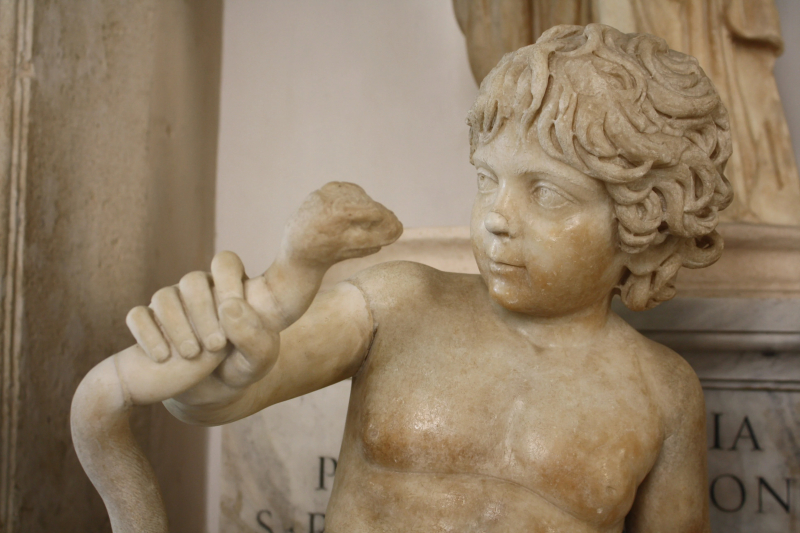
Photo: World history encyclopedia -
Hercules was raised at the Amphitryon's court as a nobleman. He once knew that the nearby Theban King Creon was in danger and that the Minyans had taken over his kingdom. King Creon's realm was successfully restored by Hercules thanks to Hercules' support. The King gave Hercules his daughter Megara in return for his appreciation. Although Megara and Hercules had a number of children and appeared to be a happy pair, tragedy struck when Hercules was gone on an excursion. After killing Creon, Lycus overthrew the kingdom of Thebes and attempted to marry Megara against her will. In time, Hercules came back and killed Lycus.
But when he was thanking the Gods for his family’s safety, Hercules became mad which is Hera's plan. According to a Messenger, Heracles thought he had to kill Eurystheus when the mental breakdown struck. He imagined himself traveling from country to country as he moved from room to room. Eurystheus was mistaken for Amphitryon when he attempted to stop him, and his own children were mistaken for Eurystheus. He murdered his wife and three sons in his craziness. Athena struck him as he threatened Amphitryon, putting him to sleep. Opening the castle doors reveals Heracles now dozing off while still being bound to a pillar and surrounded by the bodies of his wife and kids. Amphitryon informs him of his actions when he awakens, and out of guilt, he wishes to end his life. The tragedy makes Hercules's fit of madness one of the most famous myths featuring Hercules.
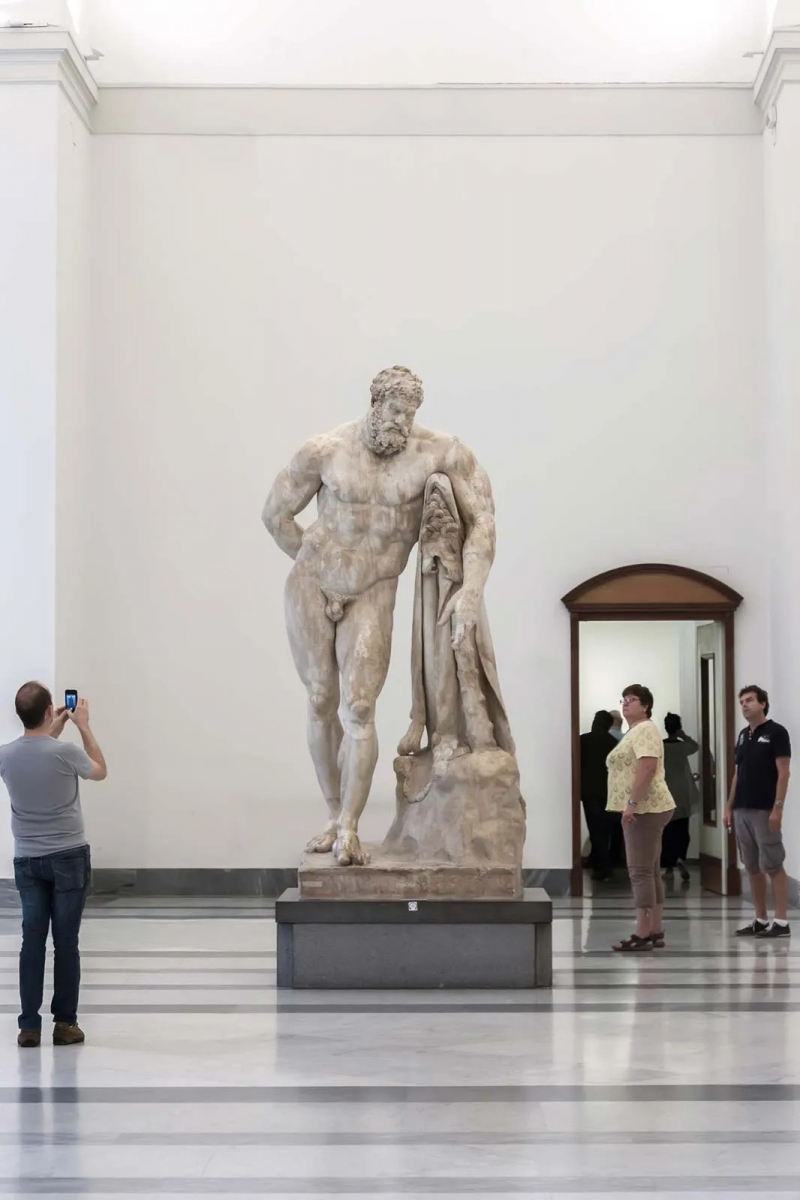
Photo: Britannica Source: Mythology explained -
Hercules felt great guilt for killing his own family, which was a sin. He had considered suicide, but his cousin Theseus persuaded him against such a cowardly deed. Thus, Hercules set out for Delphi to seek redemption for his guilt. Here is where the Oracle of Delphi Pythia gave him the advice to travel and spend ten arduous years serving his cousin and bitter foe, King Eurystheus. Only after completing any duties Eurystheus assigns him will he be eligible for redemption. Hercules finally gave in when he was asked to serve his enemy, who was much less noble than him.
He doesn't know that Eurystheus and the Oracle both work for Hera. Eurystheus replaced Hercules as a strong ruler only because of Hera and he was wholly devoted to the Goddess. Together, they came up with ten exceedingly difficult tasks that Hercules would have to complete in order to fail and die; these are known as the "Labors of Hercules." Hercules became the ideal representation of the Greek concept of pathos—the experience of valiant struggle and suffering that would lead to acclaim and, in Hercules' case, immortality—through his struggles.
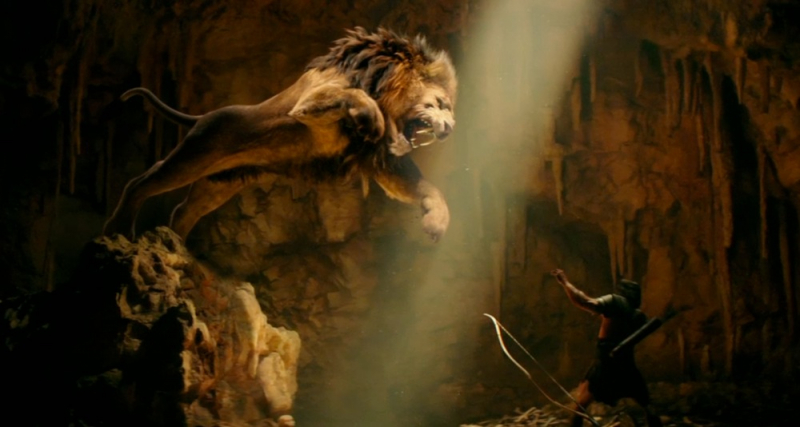
Photo: Greece High Definition 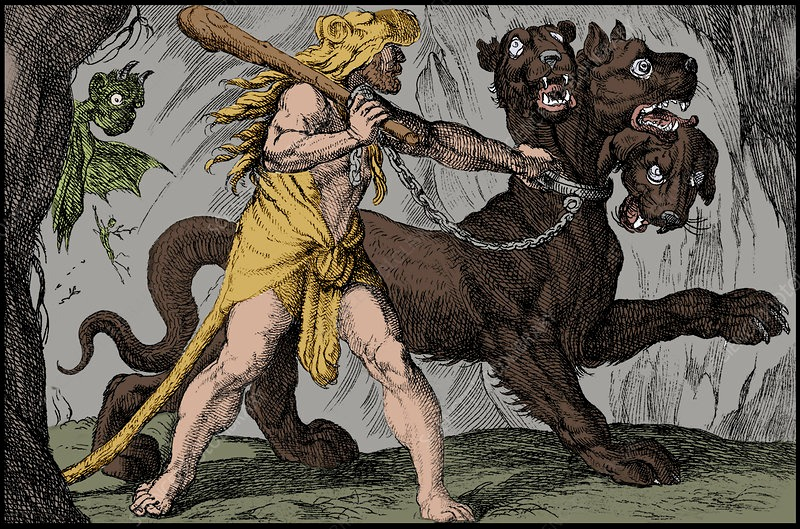
Photo: Science photo library -
Labors of Hercules is one of the most famous myths featuring Hercules. First, he had to slay the Nemean Lion. The beast had a magically indestructible golden hide that was golden in color. Hercules had to combat the monster and use just his hands to fight it. Hercules ultimately succeeded in skinning the beast with its own claws after killing it. The second labor is slaying the Lernaean Hydra which is a snake with poisonous breath and blood. Hercules rapidly saw that Hydra could not be killed by slicing off her head. He sought assistance from his nephew Iolaus, who proposed that he burn the neck stumps after each decapitation. The plan was successful, and Hercules eventually killed the monster.
For the next task, the Ceryneian Hind, the sacred animal of Artemis, was sent by Hera and Eurystheus to be captured by Hercules. Hercules finally caught the hind after a year-long pursuit, but on the way back he was met by Artemis and Apollo. Hercules' plight was heard by Artemis, who pardoned him and let him finish the task.
Eurystheus next requested that Hercules deliver the enormous Erymanthian boar alive. He first pursued, forcing it to flee through dense bushes and trees until finally driven into a deep snowbank. The animal was chained up and brought back on Hercules' left shoulder. Next, Eurystheus tasked Hercules with the job of cleaning the stables of King Augeas. By rerouting the rivers Alpheus and Peneus and cleaning out the filth in just one day, Hercules was able to complete the task. He also demanded 1/10th of the life stock as an award if he would do the job in a day.
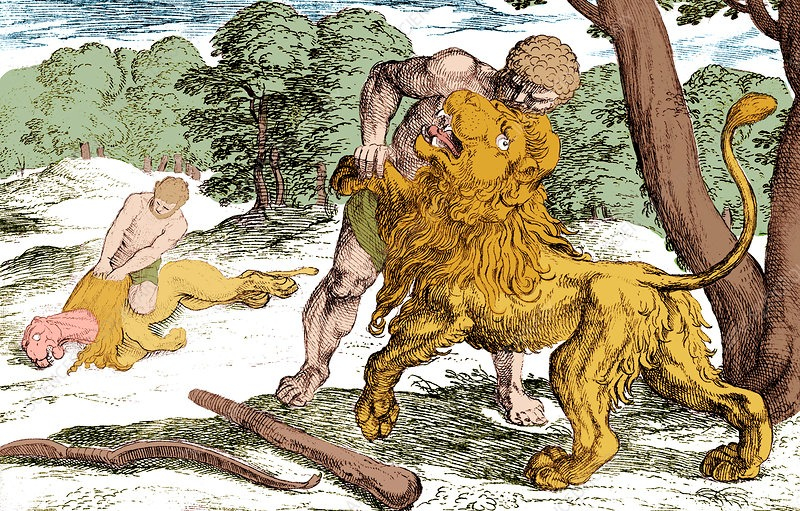
Photo: Scient photo library Source: See U in History -
The sixth task of Hercules is defeating the Stymphalian birds which were terrorizing the Lake Stymphalia in Arcadia. With Athena's help, he successfully killed these birds with a rattle made by Hephaestus, the god of blacksmiths. Hercules shook the rattle, sending the birds flying. With his arrows, he killed a few of them, and the others fled, never to be seen again. Next, after receiving King Minos' approval, Hercules traveled to Crete and killed the Cretan bull that was the father of the Minotaur.
In the 8th task, Hercules had to steal the mares of Diomedes. The flesh of unassuming guests and visitors to the island was incorporated into the unusual diet given to these horses. They became crazy as a result, and it's very difficult to control them. Hercules tried to calm the horses, but when he realized that human flesh is the key, he fed the animals Diomedes, their owner, and was able to lead them to Eurystheus. In the 9th task, Eurystheus ordered Hercules to steal her belt of Hippolyta for his daughter. Hippolyta was impressed by the brave and well-known Hercules and agreed to give him the belt. But Hera disguised as an Amazon woman spread a rumor that Hercules kidnapped the queen. As a result, Hercules was attacked by the Amazons, leading him to kill the queen and take her belt.
Hercules was tasked with stealing the cattle of Greyon as his 10th labor. He first defeated the two-headed dog Orthrus and then kill the giant with poisoned arrows. Hera sent a gadfly to bite the cattle and scatter them as Hercules led them back to Eurystheus. Hercules had to work for almost a year to get them back. Then Hera created a flood to prevent Hercules from crossing the river with the livestock, but Hercules finished the 10th labor by dumping stones into the river.
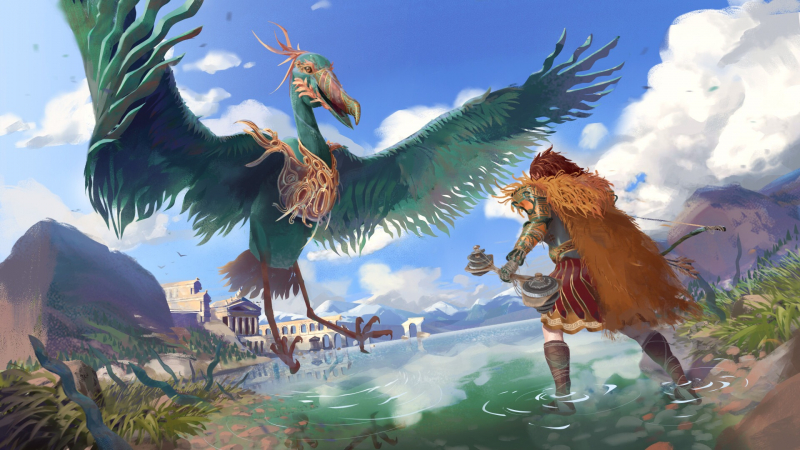
Photo: Art Station Source: See U in History -
Hercules was no longer obligated to Eurystheus at the conclusion of the tenth labor. However, according to the King, did not count because he had taken the assistance of his nephew Iolaus and payment for cleaning of the Augean stables.
In the 11th task, Hercules was asked to steal 3 golden apples from the garden of Hesperides, which belonged to Hera and was guarded by the nymphs and a dragon named Ladon. Hercules came upon the Titan Atlas, who was carrying the sky on his journey. In exchange for bearing his weight and temporarily freeing him from his curse, Hercules convinced Atlas to bring him the apples. Because he was the nymphs' father, Atlas had easier access to the garden. But when Atlas came back with the apples, he volunteered to bring them himself and refused to return to the heavens. Hercules conned Atlas into restraining the weight and ran away with the apples.
The three-headed dog known as Cerberus manned the entrances to the underworld. The last task assigned to Hercules is to capture this dog. Hercules decided to approach Hades for permission to borrow the monster dog rather than try to steal it. Hades consented if the hero could capture and control the dog without the aid of any weapons, and without harming it. Cerberus was subdued by Hercules using only his hands before being slung over his back. He then brought it back to Eurystheus.
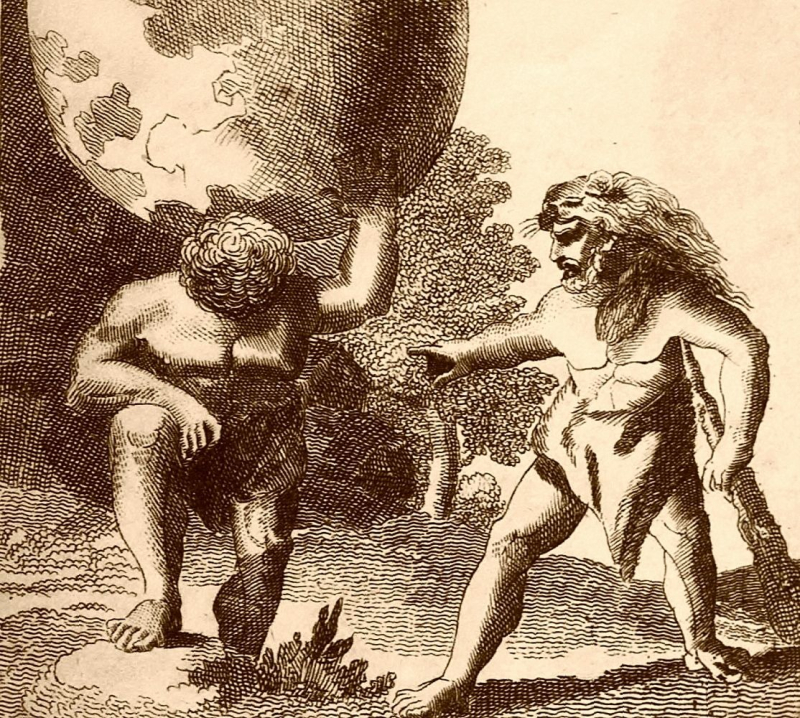
Photo: Pinterest Source: See U in History -
Hercules could now do as he pleased because he was no longer a slave. But Hercules' life will never be peaceful because of Hera's tricks and his own lack of self-control. In yet another moment of rage, Hercules killed his companion Iphitus. He returned to Delphi to seek a means of self-purification after regretting his action. Hercules became enraged and attempted to take the tripod of Delphi because the Oracle refused to answer his questions. In response to Hercules' terrible actions, the Oracle of Delphi ultimately decreed that he be sold into slavery for a year. As a result, Queen Omphale decided to purchase the Hero from Hermes. Omphale ruled the ancient kingdom of Lydia, which was located in what is now Turkey.
When Hercules and Omphale reversed gender roles when he was a slave, the myth took an unexpected turn. While Omphale wore Hercules' Nemean lion skin and headgear, Hercules had to perform tasks that were typically performed by women and dress accordingly. Also carrying his club was her. After successfully freeing Hercules, Omphale decided to wed the hero. The couple has a son. The story about Hercules and Omphale continued to be well-liked among artists, allowing them permission to delve deeper into carnal themes and gender roles.
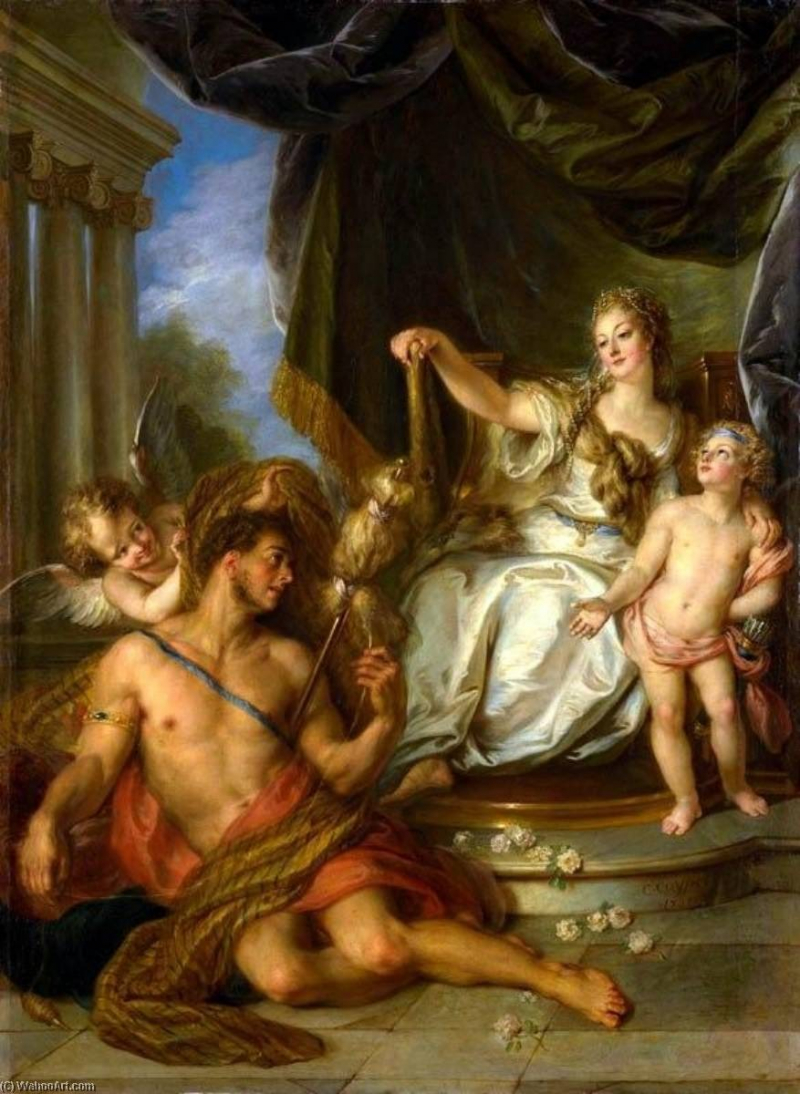
Photo: Most famous paintings 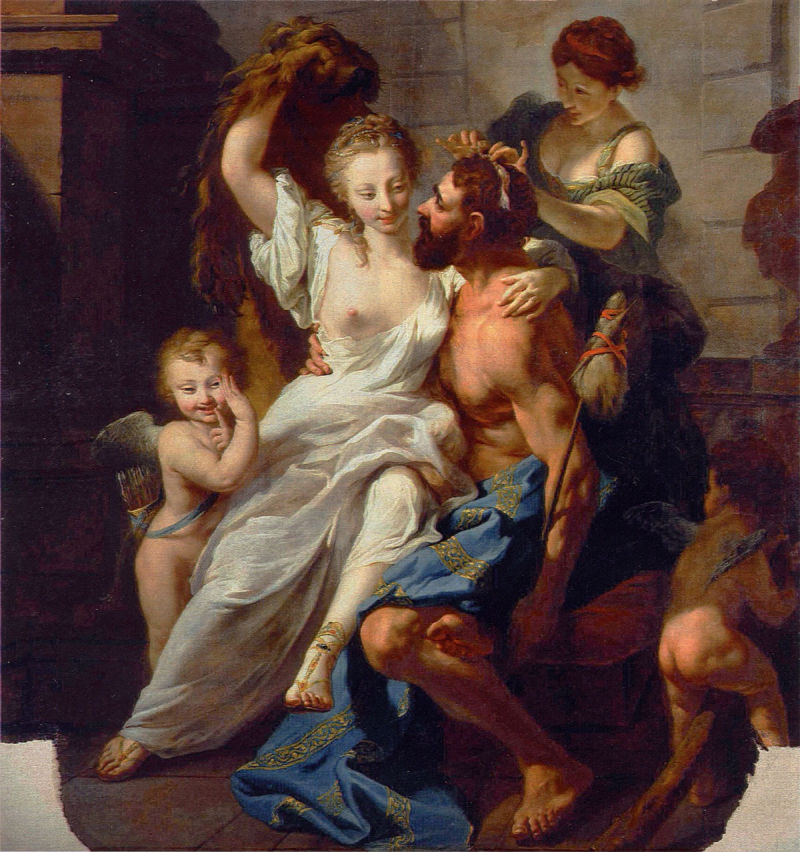
Photo: Wikidata -
Hercules continued his journey by aiding the Olympus Gods in their battle with the Titans. He won the battle, freeing the Gods from captivity and saving the world from chaos. Hercules arrived at Claydon later in his life and fell in love with princess Deianira there. Hercules wrestled the river god Achelous in order to obtain her hand in marriage. Although Hercules and Deianira were happily married, the union would ultimately result in Hercules' demise. A perilous river was once being attempted to be crossed by the couple when Nessus, a centaur, offered to assist the woman. Nessus sought to rape Deianira as he got to the opposite side, revealing his true intentions. Hercules was compelled to shoot him with an arrow poisoned by the Hydra as a result.
The centaur, however, prepared a revenge plan on Hercules. He said that his blood was a love potion and that Deianira could make Hercules faithful by applying a small amount of it to the hero's clothing. Hercules and Deianira settled down in Trachis. She began to feel threatened by Iole, another princess, after a long time. She presented her husband with the garment stained with Nessus' blood out of fear that Hercules would desert her. Hercules was swiftly devoured by the venom, and the excruciating pain drove him insane. In order to put an end to his agony and his earthly life, he built his own funeral pyre on Mount Etna and threw himself into it.Source: Ancient Greece 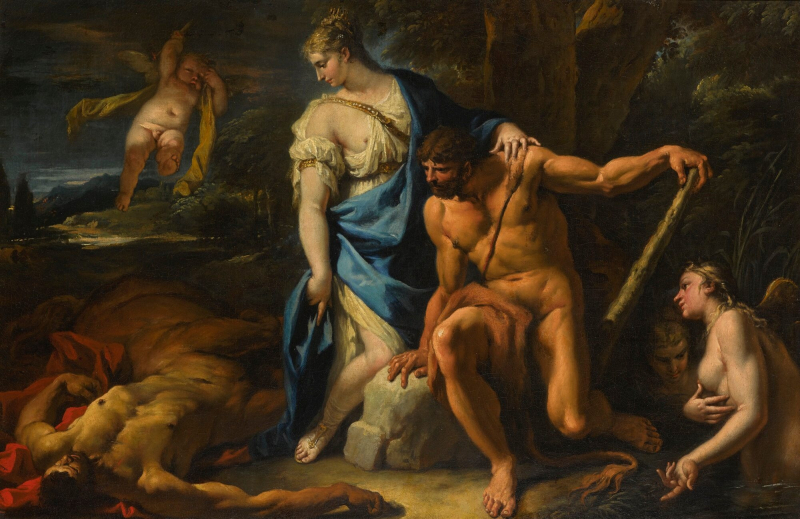
Photo: Wikimedia Commons












